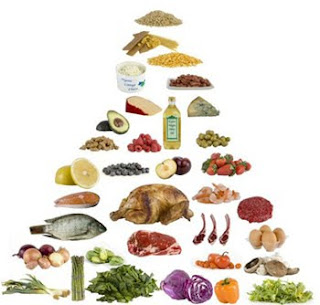Is the Paleo Diet for You?
Paleo diet or not, there is no one way to eat right. Everyone's body is different and responds to foods differently. And, eating healthy and burning fat is an individual ordeal that has trial and error. If you don't enjoy the Paleo diet, you won't stick with it.

Some experts think that you should eat the Paleo diet because it's better for your health. According to Dr. Loren Cordain, professor of health and exercise science at Colorado State, “It makes sense from an evolutionary perspective. “It’s a system of eating that we’ve already adapted to.”
There are other experts who don’t agree. They contend that surely the body can adapt to changes in nutrition. Dr. Marlene Zuk, professor of biology at the University of California-Riverside, said, “We don’t know exactly what early humans ate.
“But, their diet almost certainly included grains at least some of the time and they also ate many different foods depending on where they lived and what time period you’re talking about...the idea that humans haven’t had enough time since the advent of agriculture to evolve adaptations to new foods is false.”
Who’s right? In my opinion, both camps are right to some extent. The Caveman or Paleo Diet has been around forever but has gained significant attention over the last decade. Its high concentration of meat (as much as 65 percent of daily calories), fruit, non-starchy vegetables, nuts and seeds are good for your diet.
At the same time, no one can argue that foods such as oats, Greek yogurt, peas, sweet potatoes, butter (from grass-fed cows), brown rice and beans are also good for your diet.
Whatever the diet, the same rule applies: you will gain weight if you consistently eat more calories than you burn.
So, what’s a person to do? I say eat a balanced diet, adjusted for your goals. Your body needs the macronutrients to function properly:
--proteins (20-35 percent of daily calories)
--healthy fats (10-20 percent) and
--carbohydrates (50-60 percent)
In my opinion, there are elements of the Paleo diet that will work well for anyone. Eating protein (lean meats, seafood, nuts) with every meal is always good. Proteins keep you fuller for longer, helps you eat less and the body has to work harder to digest them. Proteins also help rebuild muscle tissues after a tough weight training workout. And the health benefits of fruits and vegetables are unquestioned. There are also foods, like those mentioned above, not included in the Paleo diet, that taste good and are good for your body.
The most important thing to remember when putting your meals together: eat healthy, nutritious meals that you like and you can maintain in order to reach your health, fat loss and weight loss goals. You don’t have to eat like a caveman to do that.
-Still have questions? Check out my friends' site over at PaleoHacks! They are All Paleo, all the time!

Some experts think that you should eat the Paleo diet because it's better for your health. According to Dr. Loren Cordain, professor of health and exercise science at Colorado State, “It makes sense from an evolutionary perspective. “It’s a system of eating that we’ve already adapted to.”
There are other experts who don’t agree. They contend that surely the body can adapt to changes in nutrition. Dr. Marlene Zuk, professor of biology at the University of California-Riverside, said, “We don’t know exactly what early humans ate.
“But, their diet almost certainly included grains at least some of the time and they also ate many different foods depending on where they lived and what time period you’re talking about...the idea that humans haven’t had enough time since the advent of agriculture to evolve adaptations to new foods is false.”
Who’s right? In my opinion, both camps are right to some extent. The Caveman or Paleo Diet has been around forever but has gained significant attention over the last decade. Its high concentration of meat (as much as 65 percent of daily calories), fruit, non-starchy vegetables, nuts and seeds are good for your diet.
At the same time, no one can argue that foods such as oats, Greek yogurt, peas, sweet potatoes, butter (from grass-fed cows), brown rice and beans are also good for your diet.
Whatever the diet, the same rule applies: you will gain weight if you consistently eat more calories than you burn.
So, what’s a person to do? I say eat a balanced diet, adjusted for your goals. Your body needs the macronutrients to function properly:
--proteins (20-35 percent of daily calories)
--healthy fats (10-20 percent) and
--carbohydrates (50-60 percent)
In my opinion, there are elements of the Paleo diet that will work well for anyone. Eating protein (lean meats, seafood, nuts) with every meal is always good. Proteins keep you fuller for longer, helps you eat less and the body has to work harder to digest them. Proteins also help rebuild muscle tissues after a tough weight training workout. And the health benefits of fruits and vegetables are unquestioned. There are also foods, like those mentioned above, not included in the Paleo diet, that taste good and are good for your body.
The most important thing to remember when putting your meals together: eat healthy, nutritious meals that you like and you can maintain in order to reach your health, fat loss and weight loss goals. You don’t have to eat like a caveman to do that.
-Still have questions? Check out my friends' site over at PaleoHacks! They are All Paleo, all the time!
Mark Dilworth, BA, PES






Comments
Post a Comment